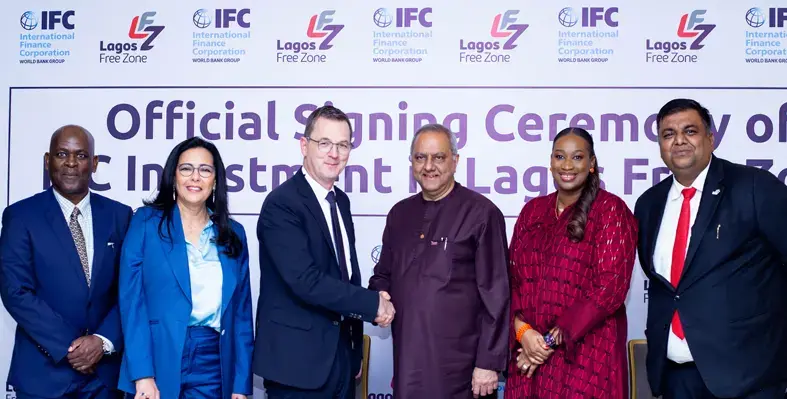The International Finance Corporation (IFC) is to invest up to US$50mn in Lagos Free Zone to support industrial growth and economic diversification in Nigeria
The funds will underpin the first phase of the 860-hectare free zone, Nigeria’s first deep-sea port-based private special economic zone, focusing on land development, industrial facilities and logistics infrastructure.
Dahlia Khalifa, IFC regional director, Central Africa and Anglophone West Africa, said the investment is designed to address critical infrastructure gaps, attract local and global businesses and contribute to Nigeria’s economic diversification agenda.
“This investment reflects IFC’s commitment to fostering inclusive economic growth and sustainable development in Nigeria,” said Khalifa.
“Lagos Free Zone is poised to become a transformative hub for industrial activity, driving job creation and enhancing Nigeria’s competitiveness in global markets.”
Owned by Singapore-based Tolaram, a diversified multinational group with operations across Africa, Asia, and Europe, Lagos Free Zone is integrated with Lekki Deep Sea Port and will provide an integrated industrial ecosystem for efficient import and export operations, serving as a gateway for Nigeria’s integration into global value chains.
With Nigeria’s economy projected to grow by 3.7% by 2026, investments in infrastructure are vital to ensuring sustainable growth.
Lagos Free Zone is already home to several manufacturing brands including Kellogg’s, Dano Milk, Colgate, BASF, ADM and Tata International.
When fully occupied, the free zone is expected to create 30,000 direct, indirect, and induced jobs, while contributing significantly to Nigeria’s GDP upon completion.
“We are proud to partner with Lagos Free Zone in building the infrastructure necessary to attract global and local businesses, enabling Nigeria to achieve its full economic potential,” said Khalifa.
The investment also reflects IFC’s commitment to sustainable development, with a focus on green infrastructure.
Approximately 15% of the investment is earmarked for climate-related initiatives.
“IFC’s support represents a significant and positive recognition of our vision to establish Lagos Free Zone as a world-class industrial hub,” said Adesuwa Ladoja, CEO and managing director at Lagos Free Zone Company.
“This investment allows us to scale up the existing infrastructure to attract more foreign and local tenants while promoting sustainability and creating economic opportunities for Nigeria.”
IFC investment also aligns with Nigeria's ongoing economic reforms and the Corporation’s own strategy, including the World Bank Group’s Nigeria Country Partnership Framework (2021–2025) and its 2015 Climate Action Plan, both of which prioritise diversification, the development of competitive clusters and investments in climate-resilient infrastructure.
By addressing infrastructure bottlenecks the aim is to strengthen and unlock Nigeria’s position as a regional economic leader.
Read more: Falcon Corporation ND Western & FHN consortium partners with Lagos Free Zone














